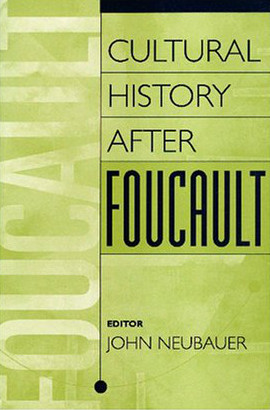James H. Johnson: Listening in Paris: A Cultural History (1996)
Filed under book | Tags: · 1700s, 1800s, audience, cultural history, france, listening, music, music history, paris, silence, sociology of music, spectatorship

Beginning with the simple question, “Why did audiences grow silent?” Listening in Paris gives a spectator’s-eye view of opera and concert life from the Old Regime to the Romantic era, describing the transformation in musical experience from social event to profound aesthetic encounter. James H. Johnson recreates the experience of audiences during these rich decades with brio and wit. Woven into the narrative is an analysis of the political, musical, and aesthetic factors that produced more engaged listening. Johnson shows the gradual pacification of audiences from loud and unruly listeners to the attentive public we know today.
Drawing from a wide range of sources–novels, memoirs, police files, personal correspondence, newspaper reviews, architectural plans, and the like–Johnson brings the performances to life: the hubbub of eighteenth-century opera, the exuberance of Revolutionary audiences, Napoleon’s musical authoritarianism, the bourgeoisie’s polite consideration. He singles out the music of Gluck, Haydn, Rossini, and Beethoven as especially important in forging new ways of hearing. This book’s theoretical edge will appeal to cultural and intellectual historians in many fields and periods.
Publisher University of California Press, Berkeley/Los Angeles/London, 1996
Volume 21 of Studies on the History of Society and Culture series
ISBN 0520918231, 9780520918238
384 pages
Peter Burke: Popular Culture in Early Modern Europe (1978)
Filed under book | Tags: · 1500s, 1600s, 1700s, cultural history, modern europe, music history, popular culture

Long neglected by historians, the concept of cultural history has in the last few decades come to the fore of historical research into early modern Europe. Due in no small part to the pioneering work of Peter Burke, the tools of the cultural historian are now routinely brought to bear on every aspect of history, and have transformed our understanding of the past.First published in 1978, this study examines the broad sweep of pre-industrial Europe’s popular culture. From the world of the professional entertainer to the songs, stories, rituals and plays of ordinary people, it shows how the attitudes and values of the otherwise inarticulate shaped – and were shaped by – the shifting social, religious and political conditions of European society between 1500 and 1800.
Publisher Harper & Row, 1978
ISBN 0-06-131928-7
366 pages
John Neubauer (ed.): Cultural History After Foucault (1999)
Filed under book | Tags: · cultural history, theory

“Both as historian and maker of culture, Foucault infused numerous disciplines of study with a new conceptual vocabulary and an agenda for future research. His ideas have called central assumptions in Western culture into question and altered the ways in which scholars and social scientists approach such issues as discourse theory, theory of knowledge, Eros, technologies of the Self and Other, punishment and prisons, and asylums and madness. The contributors to this volume indicate Foucault’s achievements and the suggestive power of his work, as well as his methodological weaknesses, historical inaccuracies, and ambiguities. Above all, they attempt to show how one can use Foucault to go beyond him in opening new approaches to cultural history. Though comprehensiveness was not attempted, their essays broach the major controversial aspects of Foucauldian cultural history–the position of the subject, the fusion of power and knowledge, sexuality, the historical structures and changes–and they explicitly analyze them with respect to antiquity, the Renaissance, and the nineteenth century. In this collection, Neubauer presents analyses by historians, literary scholars, and philosophers of the entire, transdis-ciplinary range of Foucault’s oeuvre, emphasizing the rich suggestiveness of its agenda. The breadth of the undertaking makes it suitable for seminars and graduate courses in numerous departments.”
Publisher Aldine Transaction, 1999
ISBN 0202305856, 9780202305851
246 pages
PDF (updated on 2016-12-23)
Comments (2)
